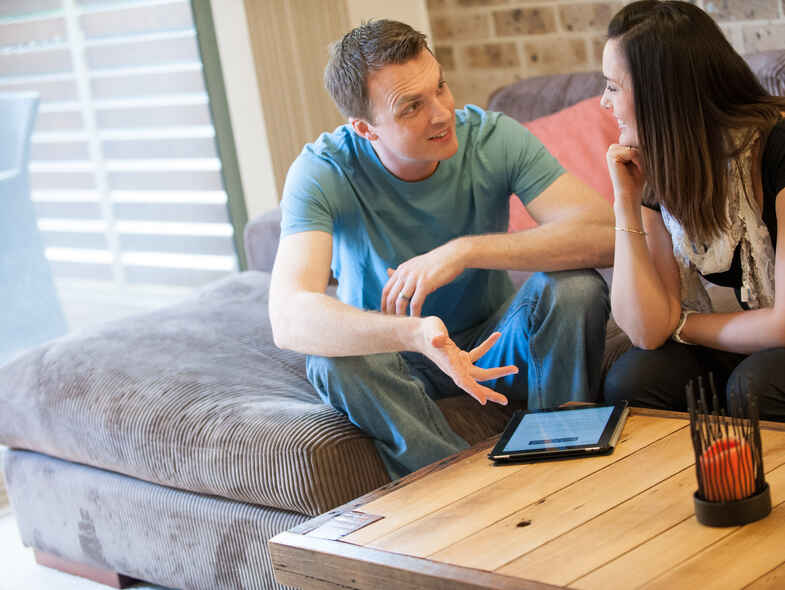Let’s be honest, buying your first home is one of the biggest financial decisions you will ever make in life. It involves a thorough thought process with many different criteria and a checklist to make sure your first house is what you want and need. It can be a daunting task and involves asking yourself many different questions: Do I buy old or new? How much can I afford? How do I judge which house to go for? The way to answer these questions is by knowing what you want and what you need, both now and in the future. Here are 5 considerations:
1. What are your “non-negotiables”?
We recommend making a list of your non-negotiables. This is a list of things you cannot do without. Remember to think about now and the future and take the emotion out at this stage. Think about how big you need the house to be, what size the garage should be, do you want to extend or renovate the house, or do you need two bathrooms for a future family? It’s important to think about the future and think rationally about your non-negotiable list, as what seems to be a non-negotiable now, may not be 5 years down the road.
Other points to consider include, where do I want to live? What kind of lifestyle do I have? If you are outdoors people will a walking track nearby be on your non-negotiable list? If you work in the city do you need to live in the inner suburbs? It is necessary to do your research and know what kinds of suburbs suit you.
Take as much time as you need to complete your non-negotiable list as there isn’t a certain time period that is best to buy in, unless your own time constraints dictate so, you can buy at any time of the year.
2. What is your budget?
Once you have worked out your list it is important to consider your budget; get a maximum and minimum in mind. However keep in mind it often depends on what you have or don’t have to do on the house that dictates how much your final spend will be, because you may have a project in mind, or want to fix or change something about the property. You can quickly spend $20,000-$30,000 in furniture, floor coverings and other things you need to fix or add to the house. Don’t be afraid to ask your Peter Blackshaw real estate agent for contacts of trusted financial advisors.
Don’t be too daunted by these figures though, you can also quickly add value by making your own improvements. Just by doing your own gardening and small scale landscaping you can add up to $40,000-$50,000 of equity to your property.
3. Old or new?
Tied in with budgeting is the decision of whether to go with a new, existing or old house, as this will affect your final budget. There is no distinct advantage between the choices, it purely rests upon your own personal interests, whether you want to renovate or improve on the house, whether you want to be able to get all the grants associated with buying a new house or many other reasons that promote one option over another. This decision can be made after the search process though, if you set your sights on a new property you might miss out on that existing house that is suited for you.
If you are looking for an investment property think about things like, is it in a public transport corridor? Are there any local warehouses or shops being built in that suburb? Or any other kinds of development around the suburb, as these will add value going into the future.
4. What do you need to know about the market?
Once you have decided these things it’s time to go looking. Make sure when you start looking you really educate yourself so you know what kinds of houses are in particular suburbs, what kinds of suburbs promote a certain kind of lifestyle and again just knowing what is happening around the suburb. The more you educate yourself through research; the better off you will be throughout the process. When you’re doing this keep your options and your mind open, the more properties you look at the more you will end up knowing where you want to buy, and what type of house you need.
Then the time comes to physically go and view the house, and at this stage your non-negotiable list becomes very important as you might fall in love with one or two aspects of the house, but if it doesn’t fit your non-negotiables then you have got to consider how this will impact you now and in the future.
5. What other questions need to be asked?
It’s important not to think with your emotions too much when you are looking at houses, keep it simple, remember your non-negotiables, take into account your lifestyle and don’t be afraid to ask the agent some questions. In an open house situation make the effort to ask questions. If all your questions aren’t answered at the time ask for the agent’s business card, so you can call up later and ask those questions, or even set up a private viewing so that the agent can talk you through the house.
Keep in mind that no property is going to tick every single box, so work out your non-negotiables, your needs, and what suits your lifestyle. This includes not just in the present, but 4 or 5 or even 10 years down the track.
Kohan Carruthers-Taylor





